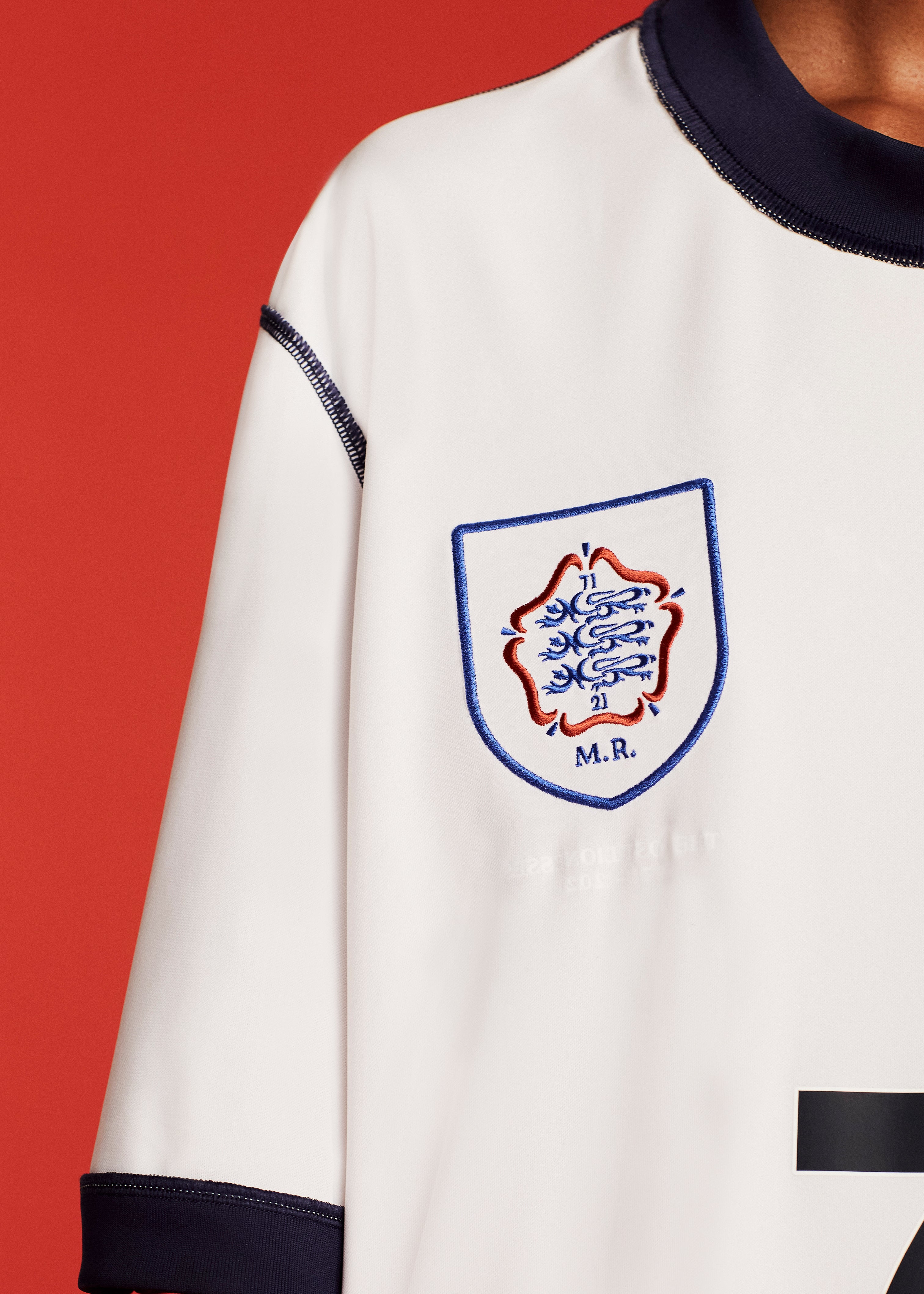New Nike collection celebrates England long-forgotten women footballers
The shirt is modelled by record-setting athletes, such as the first woman to referee an English football league match

Your support helps us to tell the story
From reproductive rights to climate change to Big Tech, The Independent is on the ground when the story is developing. Whether it's investigating the financials of Elon Musk's pro-Trump PAC or producing our latest documentary, 'The A Word', which shines a light on the American women fighting for reproductive rights, we know how important it is to parse out the facts from the messaging.
At such a critical moment in US history, we need reporters on the ground. Your donation allows us to keep sending journalists to speak to both sides of the story.
The Independent is trusted by Americans across the entire political spectrum. And unlike many other quality news outlets, we choose not to lock Americans out of our reporting and analysis with paywalls. We believe quality journalism should be available to everyone, paid for by those who can afford it.
Your support makes all the difference.British fashion designer Martine Rose has collaborated with Nike to create a genderless football jersey in a nod to the “Lost Lionesses”, the squad which played in the 1971 Women’s World Cup.
Named after the group who travelled to Mexico to take part in the tournament shortly after the Football Association lifted a 50-year ban on women’s football, the “Lost Lionesses” reimagines the England jersey to reflect that sport should be “all-inclusive”.
The reversible, oversized shirt is double-crested and aims to tell two different stories. The “England” side features the logo shared by both the men and women’s national football teams and a hand-written note from Martine Rose.
The “Martine Rose” side replaces the traditional logo with the Lost Lionesses crest from 1971, which features three lions inside a Tudor rose. The designer’s initials are written underneath.

Rose, who is of Jamaican-British heritage, has described “family and community” as at the heart of her brand, with “melting-pot cultures” of London often inspiring her work.
“The future of football won’t be decided on the pitch. It’ll be made by the extraordinary people who wear their shirt on the terraces, at home or in the park where football is open to anyone who wants to play,” she told Women’s Wear Daily.
Alongside the jersey’s release, Nike and Rose have also created an immersive film that sees artists, athletes and models wearing the garment while playing an indoor football match.
The athletes include the first woman to referee an English football league match, and a footballer who plays for a team made up of people with learning disabilities.
Nike said the shirt aims to illustrate football’s “capacity to create the conditions for societal change”.
“It issues a call to the extraordinary people who wear their shirt on the terraces, at home or in the park: football is open to anyone who wants to play, regardless of gender or body shape,” the brand said.
The Lost Lionesses football team, which was made up of 14 women and girls aged between 13 and 21, were tracked down by the BBC in 2019.
At the time of the 1971 Women’s World Cup, the FA’s ban on women’s football had only just been lifted so the team mainly played in local parks and had little fame.
However, they were lauded by the Mexican public, gaining thousands of fans during the tournament.
According to the BBC, the squad were banned from playing upon their return to England by the Women’s Football Association, which was in the process of establishing its own official team at the time.
Join our commenting forum
Join thought-provoking conversations, follow other Independent readers and see their replies
Comments